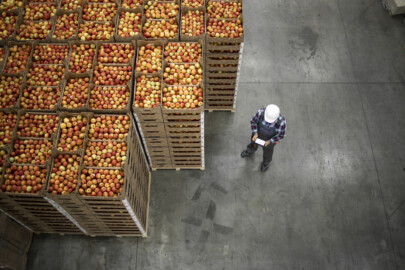The Benefits of SQF Certification for Food Warehousing and Fulfillment
As the food industry continues to become increasingly regulated, SQF (Safe Quality Food) certification is an essential factor to consider when selecting a food warehousing and fulfillment provider. Those with a valid certification can guarantee the utmost quality and safety regarding food warehousing and fulfillment. This blog post will discuss why SQF certification is so critical in the food industry and how it can benefit your business.
What is SQF Certification?
SQF certification is a food safety and quality management system that helps organizations in the food industry ensure that their products meet the highest standards of safety and quality. Retailers, food service providers, and regulatory agencies worldwide recognize the SQF system. It is designed to meet the needs of both small and large organizations.
To become SQF certified, organizations must implement and maintain a food safety and quality management system that meets the SQF Code. This is based on international and national food safety standards, such as the Codex Alimentarius and HACCP (Hazard Analysis and Critical Control Points). The certification process includes a comprehensive audit of the company’s food safety and quality systems, as well as on-site inspections and testing.
The system includes a series of requirements for food safety and quality management. These requirements include developing food safety plans, risk assessments, training programs, and monitoring and testing procedures.
Benefits of SQF Certification
Although SQF certification is a rigorous process that requires organizations to adhere to stringent food safety and quality management standards, there are many advantages it comes with. Here are the six key benefits of SQF certification.
1. Improved Product Safety
The SQF certification process ensures that food safety and quality management systems are in place and are regularly monitored to protect consumers from food safety risks. This includes rigorous testing of food products and ingredients and regular training of personnel handling food products. Additionally, the SQF system requires organizations to conduct internal audits and review reports to identify and address food safety issues.
2. Increased Efficiency
The SQF system helps to streamline processes within an organization. From the certification process, the system requires organizations to ensure that all relevant procedures are in place and properly monitored. This helps reduce the time and resources spent on food safety and quality management tasks. The SQF system also uses a risk-based approach to ensure that procedures are tailored to the organization’s specific needs.
3. Cost Savings
The system helps to reduce costs associated with food safety and quality management. This includes savings from reduced food waste, improved efficiency, and reduced labor costs. Working with a certified warehousing and fulfillment partner such as Symbia Logistics helps to reduce costs associated with product recalls and other food safety incidents.
4. Improved Brand Reputation
Brand reputation is challenging to acquire and retain. The certification process helps to ensure that organizations meet and exceed customer expectations. This helps to create and improve the organization’s brand reputation and consumer loyalty. It also helps ensure that organizations meet the requirements of food safety regulations.
5. Enhanced Market Access
The SQF system helps ensure that organizations meet food safety regulations’ requirements, which helps enhance market access. It is a globally recognized and accepted certification, which helps to boost an organization’s credibility. If your organization works with an SQF partner, you can get easy access to the global food market.
6. Increased Competitiveness
As major food chains and fortune 500 brands increasingly adapt to global food safety standards, it is critical that their supply chain partners lockstep with your growth strategy. For example, if your growth strategy includes big box retailers, you will need a warehouse that is certified to a GFSI benchmark standard.
The SQF system helps to ensure that organizations are competitive in the marketplace. As the certification process requires organizations to adhere to stringent food safety and quality management standards, they always help them ensure they are producing safe and high-quality products. Additionally, the SQF certification is globally recognized, which helps to boost an organization’s reach in the world market and hence stay competitive.
The Process of Certification
The first step in the SQF certification process is to prepare for the certification. Organizations must assess their operations to determine if they meet the SQF requirements. You also must ensure they have the necessary personnel and resources to meet the SQF requirements. This includes having adequate staff trained in implementing and maintaining the SQF system and sufficient resources (e.g., equipment, supplies, and facilities) to ensure that the SQF system is implemented and maintained.
Requirements for Certification
The SQF Code is the primary document that outlines the requirements for certification. The Code is divided into two parts: the SQF Food Safety Code and the SQF Quality Code. The SQF Food Safety Code outlines the requirements for implementing and maintaining a food safety system. In contrast, the SQF Quality Code outlines the requirements for implementing and maintaining a quality system.
To become SQF certified, organizations must demonstrate that they have developed and implemented a food safety and quality system that meets the requirements of the SQF Code. This includes developing a Food Safety Plan, implementing Good Manufacturing Practices (GMPs), and implementing a system for verifying that the food safety and quality system is in place and working properly.
Achieving Certification
Once an organization has developed and implemented its food safety and quality system, it needs to have its system audited by an accredited SQF auditor to determine if it meets the requirements of the SQF Code. If the audit is successful, the organization will be awarded SQF certification.
Organizations must then maintain their SQF certification by undergoing annual audits and making necessary changes to their food safety and quality system. In addition, organizations must also ensure that their personnel remains trained and knowledgeable in the SQF requirements and that their food safety and quality system is continually improved and updated.
Working With a Certified Food Warehousing and Fulfillment Company
Working with SQF-certified fulfillment partners is essential for any business involved in manufacturing or supplying consumer products. Not only does SQF certification help businesses meet stringent food safety standards, but it also provides consumers with the assurance that their food is safe to consume. Working with an SQF-certified partner is the best way to ensure your products are stored and delivered in line with the set standards.
Symbia Logistics is certified and can provide businesses with the expertise and resources to meet all their food warehousing and fulfillment needs. Request a quote today to get started on your personalized service.








